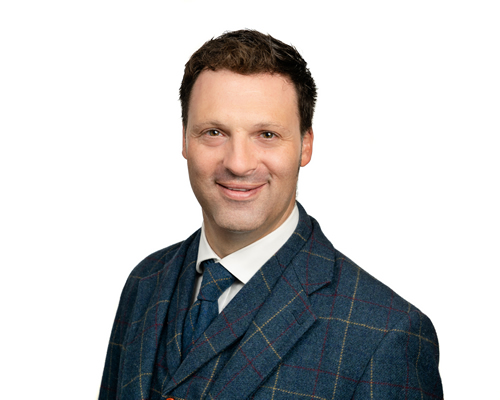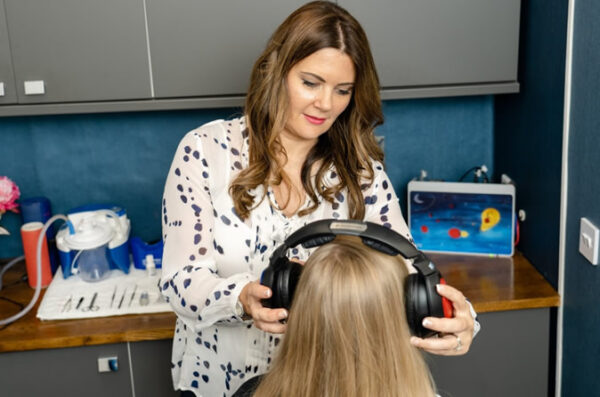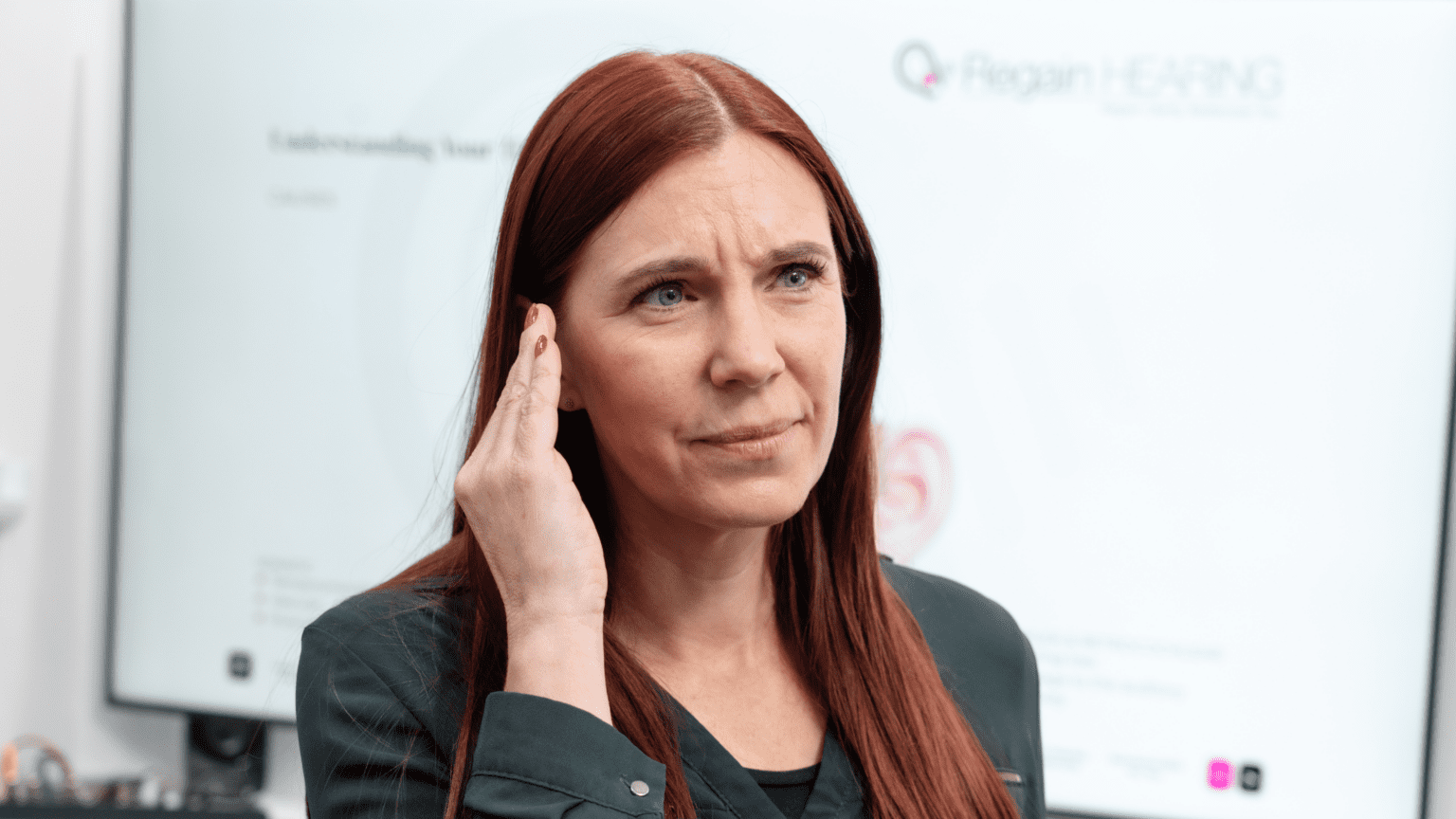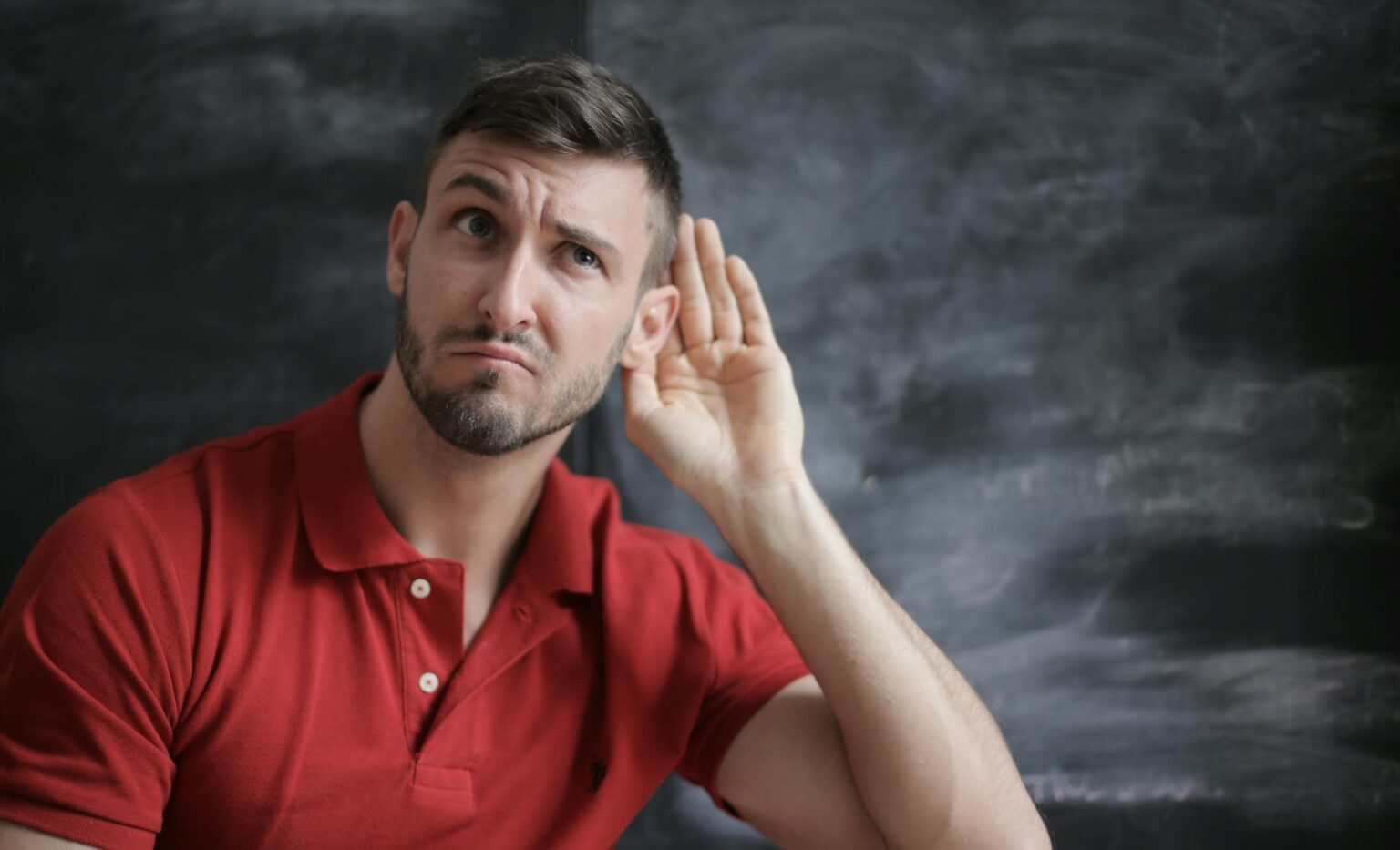
Tinnitus can be incredibly frustrating and hard to get rid of, but hearing aids that mask the unwanted noise may help cancel it out.
Do Hearing Aids Help Tinnitus? Tinnitus Masking Explained
There’s no doubt about it — tinnitus can drive you crazy. The persistent ringing or buzzing in your ears can interfere with your life and take away that peace of mind you once had as the noise continues, even when you’re relaxing in a quiet place and trying to unwind. It’s something millions of people in the UK and right around the world struggle with every day, leaving many wondering “do hearing aids help tinnitus?”
The answer is yes – wearing hearing aids can help to mask tinnitus, but unfortunately, there is no cure and it’s incredibly hard to treat.
Tinnitus is not characterised as a condition because it’s almost always a symptom of something else, and it can arise due to any number of health problems.
In this post, we’re going to take an in-depth look at tinnitus, what some of the causes are and how hearing aids work to overcome the buzzing that’s driving you mad.
Key Takeaways
- Hearing aids do not cure tinnitus, but they can significantly alleviate the symptoms by amplifying external sounds, which helps mask the internal noise caused by tinnitus. They can also be equipped with special tinnitus therapy features that provide further relief.
- Hearing aids help by increasing the volume of external noise which can make the tinnitus less noticeable. Some hearing aids come with built-in sound generators that play white noise, nature sounds, or other ambient sounds to help distract from the tinnitus.
- Look for hearing aids with tinnitus masking or sound therapy options, adjustable settings for different environments, and a comfortable fit. Programmable or digital hearing aids that allow for fine-tuning and customisation are also beneficial.
Firstly, What Causes Tinnitus?
It may seem strange, but sometimes tinnitus arises for reasons that have little or nothing to do with the ear. The causes can be elsewhere in the body, and they can be mental as well as physical.
Often it’s the case that the root problem of tinnitus is never discovered, although there are some common conditions that can give rise to it, and there is tinnitus treatment to deal with the problem.
- Damage to cell hairs – One of the most common causes of tinnitus is damage to hair cells in the ear. They’re located in the inner ear and are responsible for transmitting vibrations caused by sound into electrical signals that are then processed by the brain. They can be damaged by loud noises, various medications, and they can deteriorate as part of the ageing process. Once they’re gone, they don’t grow back, resulting in hearing loss.
- Loud noises – Hair cells become bent due to extremely loud noise, for example, and this means they’re not able to properly transmit vibrations to the brain, resulting in the ringing noise we call tinnitus.
- Presbycusis – Another cause of tinnitus in adults is a condition known as presbycusis — a big and strange word that means gradual hearing impairment due to age. It usually starts around 60 and, along with a worsening in the ability to hear, can often be accompanied by buzzing, ringing or other constant sounds in the ear — possibly because the hair cells are starting to die.
- Too much wax in your ears – is another reason why tinnitus might suddenly develop. Earwax is important for your ear and general health. After it is secreted by glands in the outer ear, it serves the dual functions of moisturising the outer ear so the skin doesn’t become dry and trapping dirt, debris and pathogens like bacteria and viruses to stop them from causing harm to the delicate structures of the inner ear. Usually, earwax eventually dries and hardens, migrates to the outer part of the ear and falls out, but sometimes it builds up and needs to be removed.
- Long-term exposure to high levels of noise, as well as short-term exposure, certainly is another cause of tinnitus, and so it’s vital to protect your ears and hearing if you’re often in a noisy environment — whether it’s due to work or your social life. Wearing headphones or earphones for long periods and having the volume turned up can also lead to tinnitus. It’s important to know that, in any of these situations and for however long you’re exposed to loud noise, the result can be permanent as well as temporary.
Other causes of tinnitus include:
- Ear infections
- A perforated eardrum
- Ménière’s disease
- Migraines
- Head injuries
- Anaemia
- High blood pressure
- Tumours
- Changes in the bones around the ear
- Smoking, stress and even having too much caffeine (as it can raise your blood pressure).
So, as we’ve seen, there are a myriad of reasons for why tinnitus might develop and, whether it goes away after a while or stays, you need relief. But how can hearing aids stop tinnitus symptoms?
How to mask or stop tinnitus symptoms with a hearing aid?
Can hearing aids help tinnitus? Yes, hearing aids can indeed help with tinnitus for many people. Here’s how they typically assist:
- Amplification: Hearing aids amplify background noise and environmental sounds. This increased auditory stimulation can help make the tinnitus less noticeable, effectively masking the ringing or buzzing sounds associated with tinnitus.
- Sound Therapy: Some hearing aids come with built-in sound therapy features. They can play white noise, pink noise, or other soothing sounds to help distract from tinnitus. This can be especially useful during quieter times when tinnitus tends to be more perceptible.
- Improved Hearing: By improving overall hearing, hearing aids can help the brain focus on external sounds instead of the tinnitus. This can be particularly beneficial if tinnitus is accompanied by hearing loss, which is often the case.
- Stress Reduction: Struggling to hear can be stressful and fatigue the brain, which might exacerbate tinnitus. Hearing aids reduce this strain by making it easier to hear, which might indirectly help reduce tinnitus symptoms.
Is there any medical evidence that hearing aids can help tinnitus?
Yes, there are a number of studies that support this conclusion. Check out the results of this study.
- What was the Objective of the study? This interventional study tested the hypothesis that hearing aids equipped with a tinnitus sound support feature would reduce the impact of tinnitus over a 12-week trial for both new and experienced hearing aid users.
- What methods were used? The study involved 19 experienced hearing aid users and 21 first-time users. They were fitted with hearing aids that included individually adjusted tinnitus masking sounds. Changes in the Tinnitus Functional Index (TFI) score from the start to the end of the trial were measured. The trial was registered with the Australian New Zealand Clinical Trials Registry (ACTRN12621001754831).
- What were the results? Significant improvements were noted in TFI scores for both new and experienced users, with no differences between the groups. The median TFI score decreased significantly from 49.0 to 26.0 after treatment, indicating a substantial reduction in tinnitus impact.
- What did we learn? The study confirmed that hearing aids can significantly reduce the impact of tinnitus on daily life. Both new and existing users of the Oticon miniRITE R hearing aids experienced notable improvements, demonstrating the effectiveness of the tinnitus sound support feature in these devices.
What type of Hearing Aids help with Tinnitus?
Several types of hearing aids can help manage tinnitus, especially those that include specific features designed to address tinnitus symptoms. Here are the main types of hearing aids that are typically recommended for individuals with tinnitus:
- Hearing Aids with Sound Masking or Sound Therapy Features – Many modern hearing aids come with built-in sound generators that can play white noise, pink noise, or other soothing sounds. These sounds can help mask the tinnitus, making it less noticeable.
- Combination Devices – These are hearing aids that not only amplify sound but also include a sound therapy feature. They are designed specifically for tinnitus sufferers, allowing them to benefit from amplification while simultaneously receiving tinnitus therapy.
- Programmable Hearing Aids – Some hearing aids can be programmed to adjust to different listening environments and can include settings specifically for tinnitus relief. The flexibility in programming allows users to find the most comfortable settings that alleviate their tinnitus symptoms in various situations.
- Open-fit Hearing Aids – Open-fit hearing aids are worn behind the ear with a narrow tube inserted into the ear canal, allowing for some natural sound to enter the ear. This design can help reduce the occlusion effect (a plugged-up sensation) and can be particularly comfortable for people with tinnitus.
- In-the-ear (ITE) and Behind-the-ear (BTE) Models – Both ITE and BTE models can be equipped with tinnitus masking or sound therapy features. These models vary in size and the level of visibility, but they can be very effective in managing tinnitus.
What do our audiologists say?
“Modern hearing aids do more than just amplify sound; they are equipped with sophisticated features like sound therapy and customisable sound settings that help mask the bothersome noises of tinnitus. This not only enhances the user’s ability to engage with their environment but also significantly improves their quality of life. It’s important for individuals experiencing tinnitus to understand that they are not alone and that there are effective solutions available to help them regain control over their hearing and their lives.”
Lee Fletcher (RHAD), (BSHAA), Ba(Hons)
Which hearing aid is right for you? Come and see our qualified audiologists to find out which hearing aid type will be best for your individual needs.
It starts with a hearing test…
Before we recommend hearing aids, we first need to understand the cause of the tinnitus. When people come to us with ringing in their ears and want to get rid of it, we first carry out an in-depth consultation with them to get their own unique story and find out what’s happening.
- Are they suffering from age-related hearing loss, for example?
- Or might they have recently attended a loud concert that damaged their hearing?
- Perhaps they started on a course of medication for a condition and the tablets could be the cause?
As part of our initial assessment:
- We may use sophisticated equipment to determine what frequencies of sound a patient can hear. And we will also look at the different types of speech a person is able to understand.
- Equally importantly, we will work out the frequency and pitch of the tinnitus sound the patient is currently hearing, giving us the best chance of trying to stop it and providing the person with the relief they’re after.
- Then, when we have a clear picture of the patient’s health and tinnitus, we’ll be able to consult with them about the best way ahead and devise a treatment plan just for them. This may or may not involve hearing aids, and if it does, they may have a white-noise generating feature that cancels out the sound of the tinnitus i.e. tinnitus masking.
The treatment may be based on our innovative sound and behavioural modification therapy and/or the use of tinnitus management apps to better help the patient deal with the noise in their ears.
If it’s the case that our audiologists determine that medical intervention is required — due to an underlying health condition that needs surgical or other treatment — we will refer you to a specialist. You can be sure that if we’re unable to help treat your tinnitus with our world-leading methods, we will find a professional that may be able to.
Tinnitus can be infuriating, but you don’t have to live with it.
What else Can You Do About Tinnitus?
As we’ve mentioned, tinnitus is not a condition itself, but rather the result of something else, and it’s quite hard to pin down what the cause might be. So when you’re trying to get rid of tinnitus and stop that infernal buzzing or ringing, you have to look at the whole body.
In the majority of cases, the cause will not be found, however, and you’ll either have to learn to cope with the noise or hope it’s only temporary.
One of the best ways of getting relief from tinnitus — especially if you’re elderly and are suffering from a degree of hearing loss — is to see an audiologist and try and work out a solution.
Here at Regain Hearing, we know how debilitating tinnitus can be for our patients and how negatively it can impact their lives. That’s why we’ve developed a pioneering treatment that can be life-changing and give you the peace in your mind that you long for. So if you suffer from tinnitus, have reached a dead-end in your search for an effective treatment and think you just have to put up with it — you don’t.
Frequently Asked Questions
What if you already wear a hearing aid?
Perhaps you’re already wearing hearing aids for tinnitus, but you still have the ringing sound? It might be the case that the audiologist can recommend a model that can mask the noise and give you some relief.
What if the hearing aids don’t stop my tinnitus?
If hearing aids alone do not provide sufficient relief, they can often be used in conjunction with other tinnitus management strategies such as cognitive-behavioural therapy, tinnitus retraining therapy, or medication. Discussing further options with a healthcare provider is advisable.
How effective are hearing aids in treating tinnitus?
Effectiveness can vary depending on the individual’s specific condition and the type of hearing aid used. Many users report significant improvement in their ability to manage tinnitus symptoms and in their overall quality of life.
Tinnitus masking is the most effective treatment for tinnitus available. Regain Hearing are specialist providers — book your consultation now.




 “Modern hearing aids do more than just amplify sound; they are equipped with sophisticated features like sound therapy and customisable sound settings that help mask the bothersome noises of tinnitus. This not only enhances the user’s ability to engage with their environment but also significantly improves their quality of life. It’s important for individuals experiencing tinnitus to understand that they are not alone and that there are effective solutions available to help them regain control over their hearing and their lives.”
“Modern hearing aids do more than just amplify sound; they are equipped with sophisticated features like sound therapy and customisable sound settings that help mask the bothersome noises of tinnitus. This not only enhances the user’s ability to engage with their environment but also significantly improves their quality of life. It’s important for individuals experiencing tinnitus to understand that they are not alone and that there are effective solutions available to help them regain control over their hearing and their lives.”



